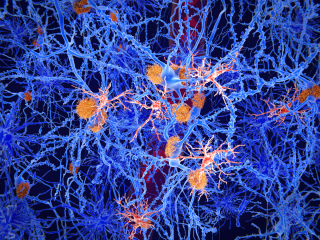
Researchers at McGill University and the Douglas Institute have made a significant breakthrough in understanding depression by identifying two specific types of brain cells altered in individuals suffering from the condition. Published in Nature Genetics, the study offers hope for developing new treatments targeting these cells, enhancing our grasp of depression—a leading cause of disability worldwide affecting over 264 million people.
“This is the first time we’ve been able to identify what specific brain cell types are affected in depression by mapping gene activity together with mechanisms that regulate the DNA code,” said Dr. Gustavo Turecki, a senior author of the study, professor at McGill, and clinician-scientist at the Douglas Institute. “It gives us a much clearer picture of where disruptions are happening, and which cells are involved.”
Rare Brain Bank Enables Breakthrough
The researchers utilized post-mortem brain tissue from the Douglas-Bell Canada Brain Bank, one of the few collections globally with donated tissue from individuals who had psychiatric conditions. This rare resource allowed them to employ single-cell genomic techniques to analyze RNA and DNA from thousands of brain cells, pinpointing which cells functioned differently in depression and identifying DNA sequences that could explain these differences.
The study examined samples from 59 individuals diagnosed with depression and 41 without the condition. The results highlighted altered gene activity in a specific type of excitatory neuron involved in mood and stress regulation, as well as in a subtype of microglia cells, which play a role in managing inflammation. In both cell types, numerous genes were functioning differently in those with depression, indicating potential disruptions in these critical brain systems.
Implications for Treatment and Understanding
By identifying the brain cells affected in depression, this research offers new insights into the biological basis of the disorder and challenges persistent misconceptions about its nature. “This research reinforces what neuroscience has been telling us for years,” Turecki emphasized. “Depression isn’t just emotional; it reflects real, measurable changes in the brain.”
The findings pave the way for future studies to explore how these cellular changes impact brain function and whether targeting them could lead to more effective therapies. The study’s authors plan to delve deeper into these questions as a next step.
About the Study
The study, titled “Single-nucleus chromatin accessibility profiling identifies cell types and functional variants contributing to major depression,” was authored by Anjali Chawla and Gustavo Turecki et al. and published in Nature Genetics. It received funding from the Canadian Institutes of Health Research, Brain Canada Foundation, Fonds de recherche du Québec – Santé, and the Healthy Brains, Healthy Lives initiative at McGill University.
Looking Forward
This development follows a growing body of research aimed at demystifying depression’s complex nature. As scientists continue to uncover the intricate workings of the brain, such studies are crucial in shaping future treatment approaches. The move represents a significant step forward in mental health research, offering hope to millions affected by depression worldwide.
Meanwhile, the broader implications of this research may extend beyond depression, potentially informing our understanding of other psychiatric disorders. As the scientific community continues to explore these avenues, the potential for groundbreaking treatments that could transform mental health care remains on the horizon.






